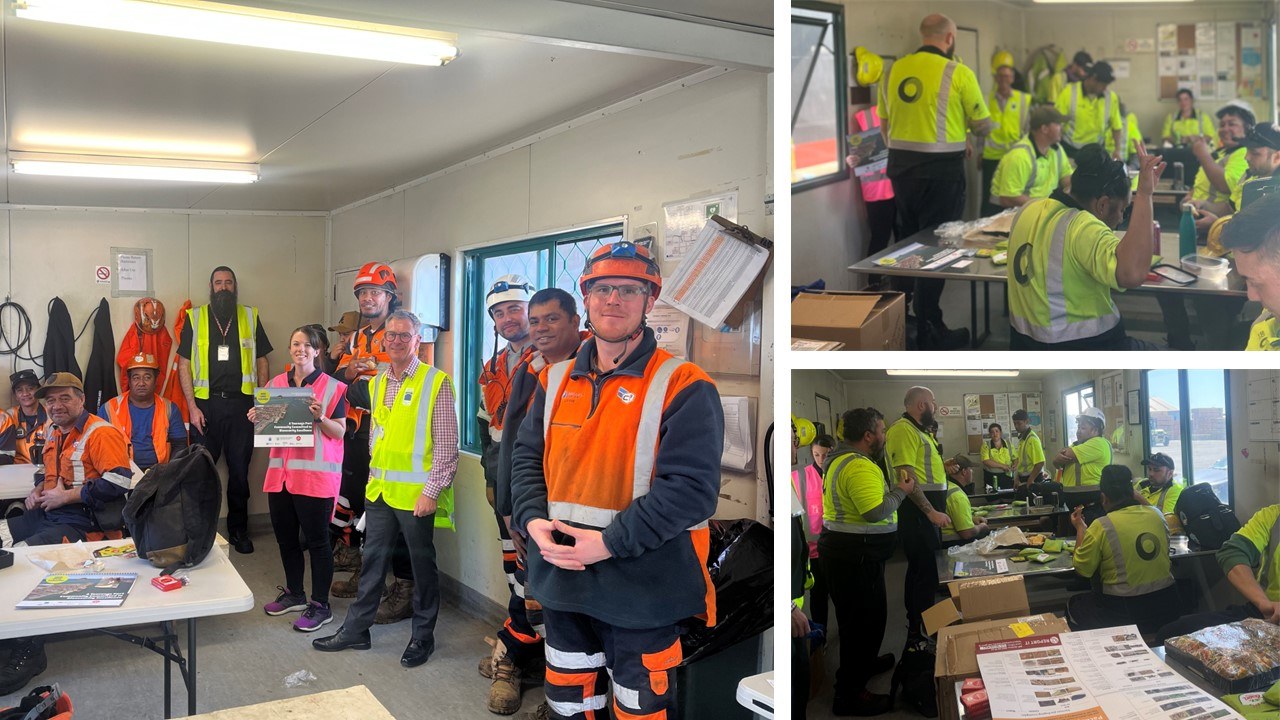Seen something unusual? MAKE A REPORT
Seen something unusual? MAKE A REPORT

Hundreds of people took part in recent events across Tauranga Moana for this year’s biosecurity week, including activities at the Port of Tauranga, highlighting frontline efforts to ensure a pest-free environment.
There are many passionate people who work on and around the port who know biosecurity is a critical issue, affecting everyone in some way. With hundreds of people operating on the frontline of the port community daily, we have lots of eyes constantly on the lookout for unwanted pests.
The port deals with millions of tonnes of cargo each year, and approximately 100 cruise ships will arrive over this summer, so we all need to be ready, vigilant, and watchful.
Biosecurity matters at ports because it is also a significant business risk. The frontline staff we met and talked with throughout the week - such as stevedores, and straddle/crane drivers - are the best placed to initially notice and report anything unusual. Our key message is if something happens, there will be a cost to you, your job or your business, and you need to know what you can do to stop it.
As the organisation responsible for leading biosecurity preparedness on behalf of the kiwifruit industry, KVH is a key partner in the initiative alongside the Port of Tauranga and Biosecurity New Zealand.
By working together, we can protect the kiwifruit industry - and other horticultural industries - from unwanted biosecurity risks. The port community understands the risk and knows that they make a difference by being vigilant and aware of new and emerging threats.
We all remember how Psa devastated not only the kiwifruit industry but the community and supply chain. Knowing what to look for and reporting anything unusual will help protect businesses and the future of the industry.
Other activities with the port community include staff from Biosecurity New Zealand visiting transitional facilities across the Bay of Plenty to share up-to-date information about managing risk and distribute useful collateral such as the ever popular 12 most unwanted pests calendar produced by the partnership, and both Biosecurity New Zealand and KVH taking part in pre-cruise season briefing sessions for the port’s security staff.
The first cruise ships for the season will arrive mid-October, when KVH will take the opportunity to re-introduce meeting tour bus drivers to talk about what to look for, how to make reports, and to share this with the international cruise ship passengers they host on trips to local kiwifruit orchards and other tourist attractions. This has proved very successful in the past.
Some of the resources distributed and discussed with frontline staff includes:
These activities are part of the biosecurity excellence partnership between the Port of Tauranga, the Ministry for Primary Industries, Kiwifruit Vine Health, NZ Avocado, Forest Owners Association, Dairy NZ, and Bay of Plenty Regional Council.
The science sector is also on board with the port’s biosecurity awareness initiative. Researchers from the Better Border Biosecurity (B3) collaboration have been working with the port and industry partners to better understand and predict local biosecurity risks, trial new detection tools, and measure the impacts of events such as these biosecurity week activities.
All these organisations are committed to working together – alongside the local Mount Maunganui community – to ensure everyone plays their part in keeping unwanted pests out of New Zealand and no biosecurity incursions come through the Port of Tauranga. Read more on the KVH website here.
KVH investigates reports of unusual symptoms to identify and manage any biosecurity risks.